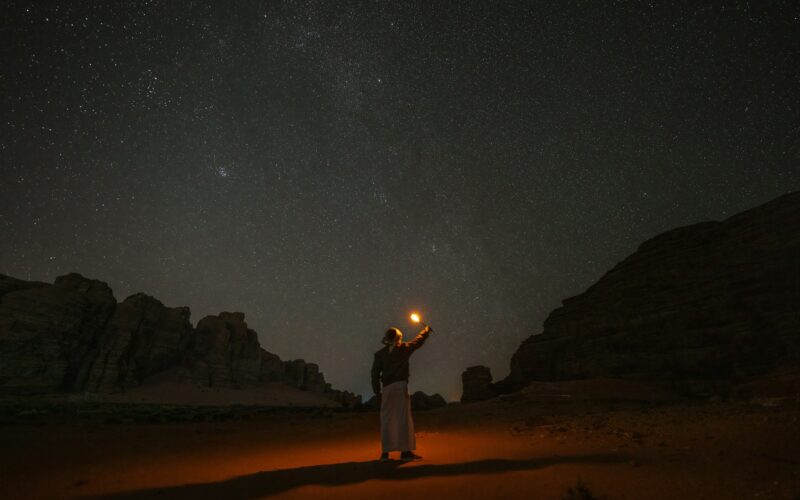In the name of Allah the most Beneficial and the Most Merciful. May peace be upon the Holy Prophet, his family and his companions.
As Shab e Barat is approaching there are a few questions in the minds of individuals regarding the significance of the 15th night of Shaban.
Shabe Barat, the 15th night of Sha’ban in the Islamic lunar calendar, holds significance among Muslims as the Night of Forgiveness.
Some believe it to be a time when Allah pardons sins and bestows mercy upon His servants. However, opinions vary regarding its importance and practices.
While some view Shab e Barat as a night of great virtue, engaging in additional acts of worship like prayer, fasting, and Quran recitation, others approach it cautiously, adhering strictly to authentic Islamic teachings.
Shab e Barat is a Bidat.
How to Celebrate Shab e Barat?
The best approach lies in avoiding extremism. It’s important not to exaggerate its significance with rituals unsupported by Islamic sources, nor to disregard its potential blessings altogether.
Misconceptions of Shab e Barat
Several misconceptions surround Shab e Barat, which require clarification based on Islamic evidence:
- Contrary to popular belief, decisions for the year aren’t made on Shab e Barat; rather, Islamic teachings indicate that this occurs during Lailatul Qadr, the Night of Decree, in the last ten nights of Ramadan.
- The notion that the Quran was revealed on Shab e Barat contradicts the verse of Surah Baqarah in the Quran, which states that the revelation began during Ramadan.
- While some suggest visiting graveyards on Shab e Barat, there is only one narration that suggests that the Prophet (peace be upon him) visited the graveyard on this night, but it is a weak narration that has defects in its chain of transmission and its text.
- Fasting on Shabe Barat lacks strong reference from any authentic Hadith, though fasting during Sha’ban is encouraged. There’s no specific Hadith that discusses the importance of fasting on the 15th.
- Making special foods on Shab e Barat is merely a cultural custom and not a religious practice endorsed by Islam.
- While some narrations mention certain acts of worship on Shab e Barat, there’s insufficient evidence to call them Sunnah.
Shab e Barat invites diverse interpretations among Muslims. The ideal approach is to adhere to Quranic principles and authentic Hadiths, avoiding extremes.
Let’s strive for a balanced and sincere approach to worship, earnestly seeking Allah’s mercy and guidance.
Ameen.
Remember, Allah knows best.
Got a question? Feel free to ask mufti and get quick answers.
MORE:


 WhatsApp Channel
WhatsApp Channel
 Instagram
Instagram
 Facebook
Facebook
 X (Twitter)
X (Twitter)
 Google News
Google News
Most of the Muslims in the Indian Sub Continent viz India, Pakistan Bangladesh, celebrate 15Mostth of Sha’baan with Eid like celebrations, illuminating Masjids with colorful serial lights, wearing new dresses, preparing lavish food, etc.
The Imams and Maulvis make a big propaganda for this and leading Muslims into outright Bid’ah.
Proofs from Sahih Hadith declare otherwise.
Misconceptions regarding Shab-e-barat (15th Sha’baan) and their answers_
*Misconception # 1:*
Allah descends to the first heavens on this night to forgive us.
Answer:
The Prophet (Sal Allaahu Alayhi wa Sallam) said: “Every night when it is the last third of the night, our Lord, the Superior, the Blessed, descends to the nearest heaven and says: Is there anyone to invoke Me that I may respond to his invocation? Is there anyone to ask Me so that I may grant him his request? Is there anyone asking My forgiveness so that I may forgive him?. ” (Bukhari 1145,Muslim 1261)
===
*Misconception # 2:*
This is the night when our fate, lifespan, and provisions are decreed.
Answer:
The Prophet (peace be upon him) said: “When the drop of (semen) remains in the womb(of mother) for forty (days) or forty nights, the angel comes and says:
“My Lord, will he be good or evil?” And both these things would be written.
Then the angel says: “My Lord, would he be male or female?” And both these things are written.
And his deeds and actions, *his death*, his livelihood; these are also recorded. [Sahih Muslim Hadith 6392]
===
*Misconception # 3:*
Deeds are shown (to Allah) on 15th shaban
Answer:
Prophet (peace be upon him) said “Deeds are shown (to Allaah) on Mondays and Thursdays, and I like my deeds to be shown when I am fasting.” [Tirmidhi, 747; classed as saheeh by al-Albaani in Saheeh al-Targheeb, 1041. ]
===
*Misconception # 4:*
The night of the 15th of Shabaan should be singled out for special kinds of worship, prayer, etc. and they have a great reward
Answer:
There is no Saheeh Hadeeth concerning the night of the fifteenth of Shabaan.So this night is ordinary like other nights and the reward for praying/worshiping in this night will be the same as other nights
===
*Misconception # 5:*
Fasting on the day of 15th shaban has a special and great reward
Answer:
Fasting on 13th 14th 15th of every month is recommended not only on 15th shaban
Prophet (peace be upon him) said “If you fast any part of the month, then fast the thirteenth, fourteenth and fifteenth.” [Tirmidhi, 761; al-Nasaa’i, 2424; classed as saheeh by al-Albaani in Saheeh al-Targheeb, 1038. ]
===
*Misconception # 6:*
This is the night when the souls of departed ones return to their families.
Answer:
This thing has no basis in Quran or Ahadith…. The souls can never return to this world. This is a fabrication and lie invented by people
===
*Misconception # 7:*
Look at all those people doing it. How can they all be wrong?
Answer:
Allah says, “And if you obey most of those in the earth, they will lead you astray from Allah’s way; they follow but conjecture and they only lie.” [Al Qur’an 6:116]
So this is a weak argument that majority of people do it and believe in it so it is true.